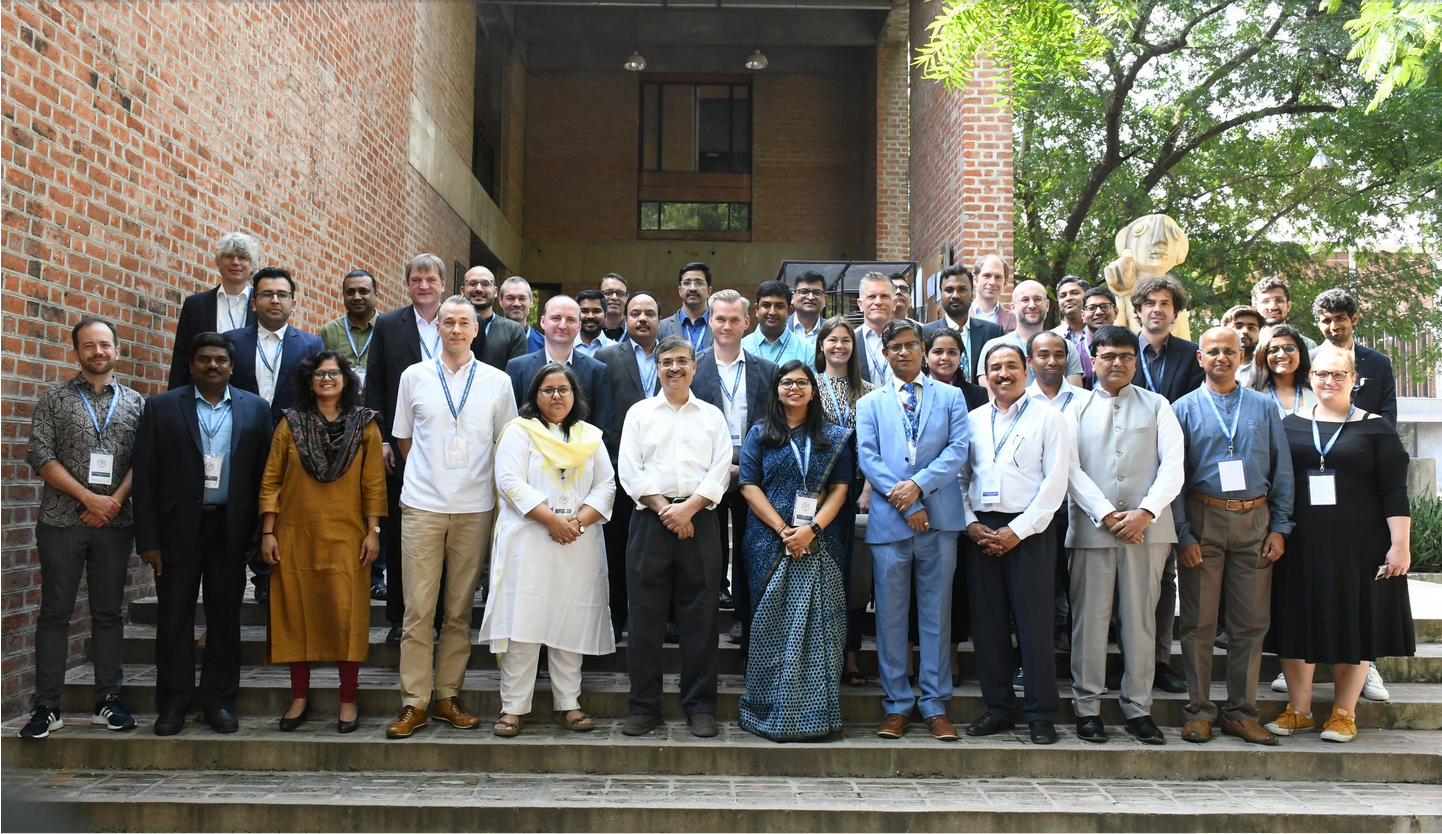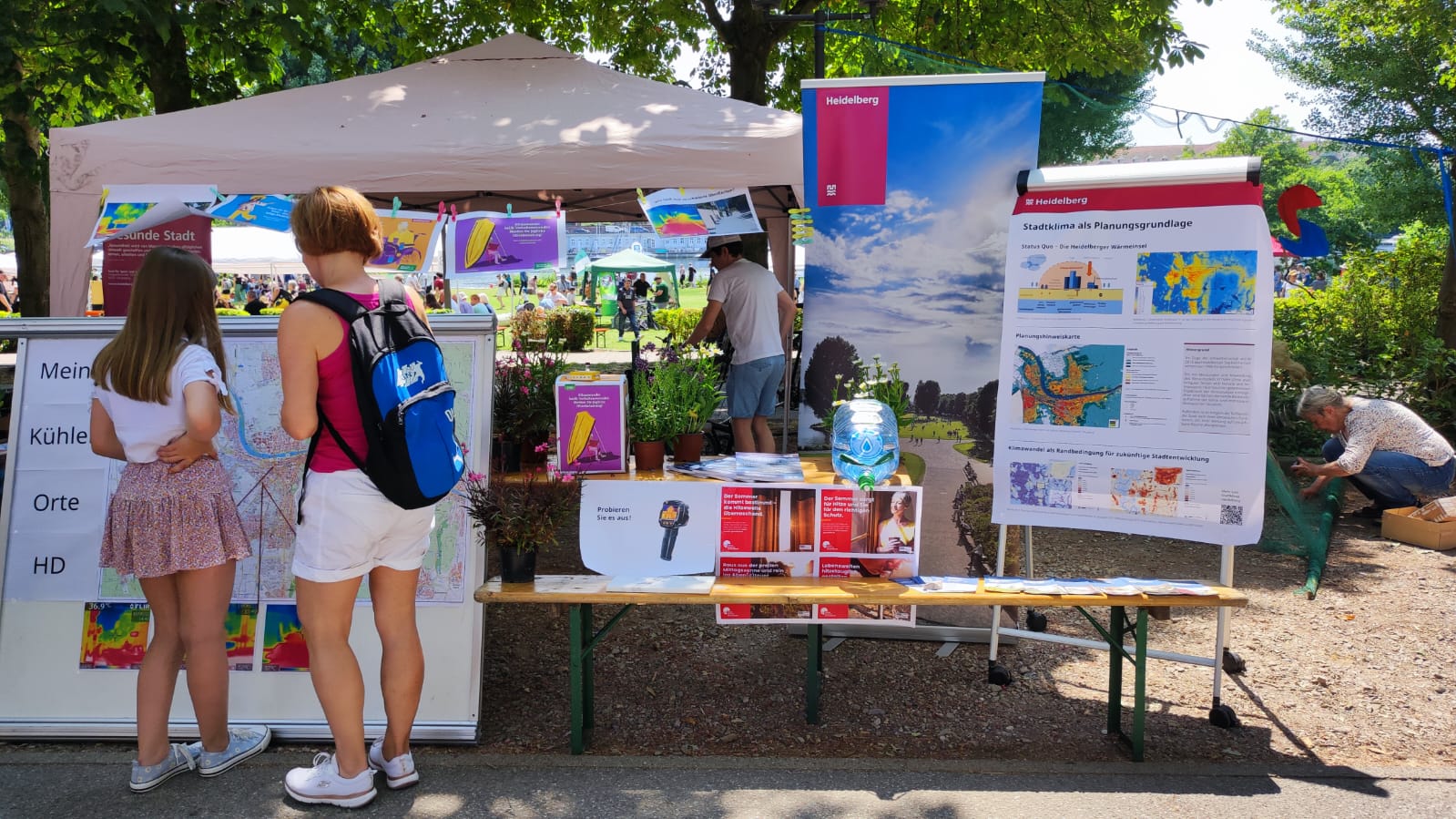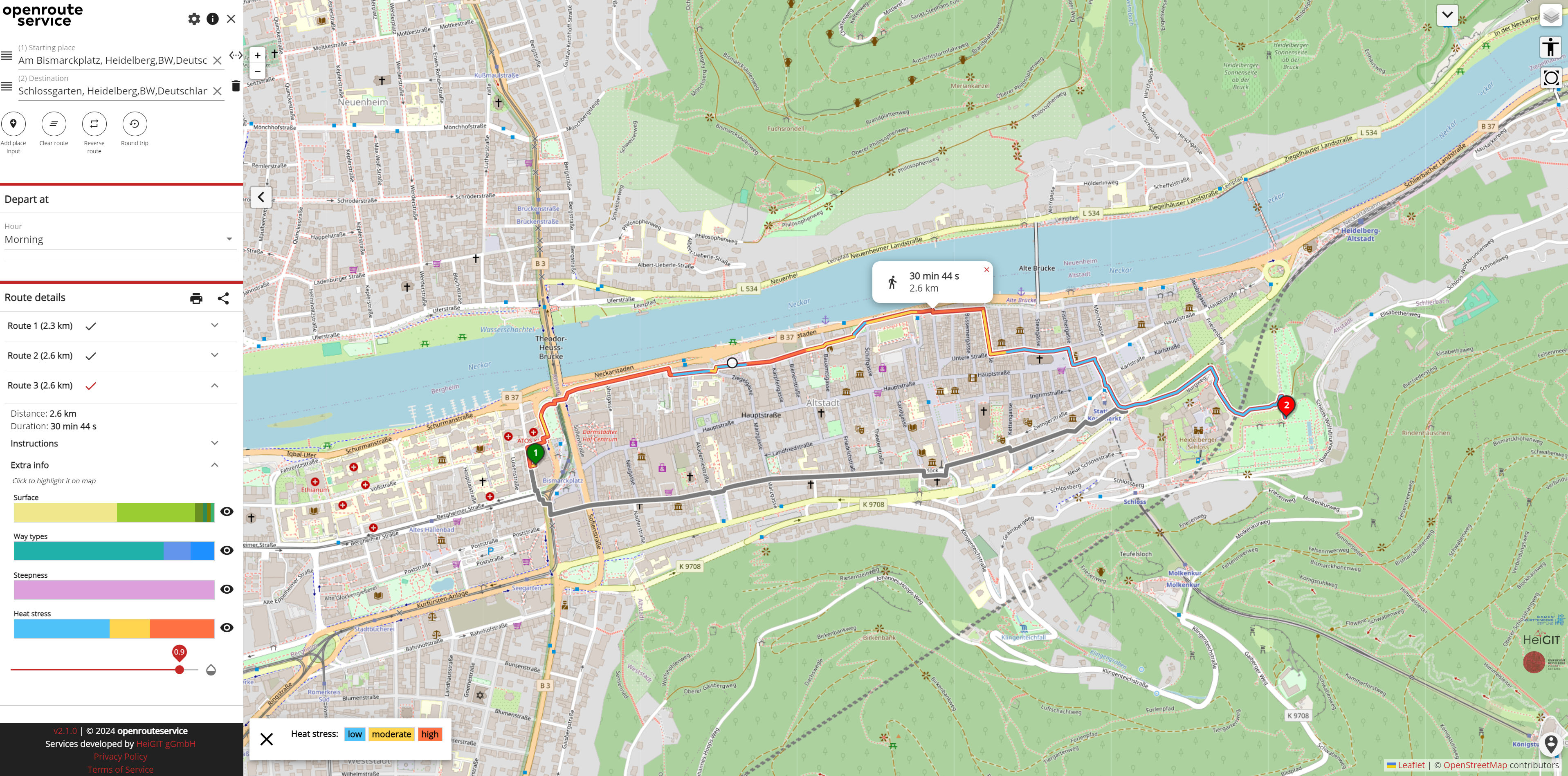Mit steigenden Sommertemperaturen nehmen die Gesundheitsrisiken insbesondere in urbanen Gebieten aufgrund der Hitzebelastung zu, zum Beispiel in Städten wie Heidelberg mit hoher Bebauungsdichte und begrenzten Grünflächen. Dies kann zu einem Anstieg hitzebedingter Erkrankungen führen, insbesondere bei gefährdeten Bevölkerungsgruppen wie älteren … Read More
Deutsch

HEAL Project Takes Center at the 17th Rhine-Neckar Modelling Day at Heidelberg University
The 17th Rhine-Neckar Modellierungstag (Modelling Day) at Heidelberg University will take place on June 13, focusing on the themes of optimization and sustainability. The event is organized by the Graduate School HGS MathComp in cooperation with the City of Heidelberg … Read More

HeiGIT at the AGILE 2024 Conference: Mapping, Routing, Sustainability
“Geographic Information Science for a Sustainable Future” – The theme of this year’s conference held by the Association of Geographic Information Laboratories in Europe (AGILE) in Glasgow, UK, on 4-7 June 2024. Attendees of the AGILE 2024 conference will explore the … Read More

„How to assess the needs of vulnerable population groups towards heat-sensitive routing?“
The research team of the transdisciplinary project HEAL (Heat Adaptation for Vulnerable Population Groups), focusing on providing heat adaptation measures for vulnerable groups in Heidelberg, has published a research paper titled „How to assess the needs of vulnerable population groups … Read More

HeiGIT at the International Land Use Symposium in India
HeiGIT Scientific and Managing Director Prof. Dr. Alexander Zipf and HeiGIT Chief Scientist Adj. Prof Dr. Seven Lautenbach attended the 4th International Land Use Symposium at CEPT University in Ahmedabad, India. The symposium was held from 4th – 6th October … Read More
HeiGIT contributes to German Congress for Geography and Young Congress for Geography 2023
From 19th until 23th September 2023 the 62nd German Congress for Geography (DKG) and Young Congress for Geography (JGK) will take place at the Goethe-Universität Frankfurt. The congress under the motto „Planetary Futures“ aims to become a lively and vibrant … Read More

Trotz Hitze sicher durch den Alltag: Transdisziplinäres Projekt HEAL hilft Risikogruppen
Das transdisziplinäre Projekt HEAL bindet Bürgerinnen und Bürger in den Forschungsprozess zu Hitzestress in der Stadt mit ein: Insbesondere Risikogruppen soll der Alltag bei Hitzewellen erleichtert werden. An HEAL sind das von der Klaus Tschira Stiftung getragene Heidelberg Institute for … Read More
Finanzierung der ersten Phase des GEHIPED-Projekts gesichert
Hitzestress hat sich in Deutschland zunehmend zu einem Problem entwickelt. Seit 1881 hat sich die Zahl der Tage pro Jahr mit einer Höchsttemperatur von über 30 °C fast verdreifacht und es wird erwartet, dass sich dieser Trend aufgrund des Klimawandels … Read More

WENN ES IN DER STADT ZU HEISS WIRD
Aktuelle Meldung der Universität Heidelberg zum Projekt HEAL: https://www.uni-heidelberg.de/de/newsroom/wenn-es-in-der-stadt-zu-heiss-wird BADEN-WÜRTTEMBERG STIFTUNG FÖRDERT HEIDELBERGER PROJEKT ZU ROUTINGDIENST MIT HITZEVERMEIDENDEN WEGSTRECKEN Wo in der Stadt Heidelberg ist es besonders heiß und wie wirken sich lokale Hitzebelastungen auf gefährdete Personengruppen aus? Mit dieser … Read More

SWR-Sendung: Auf sicherem Weg durch die Hitze – Transdisziplinäres Projekt HEAL erleichtert den Alltag für Risikogruppen
Klima-Anpassungsstrategien, die Risikogruppen während Hitzeperioden unterstützen und schützen sollen, werden im Rahmen der transdisziplinären Zusammenarbeit im Projekt HEAL vom Forschungsverbund bestehend aus dem Heidelberg Institute for Geoinformation Technology (HeiGIT), der GIScience Forschungsgruppe und des TdLab Geographie der Universität Heidelberg entwickelt. … Read More

